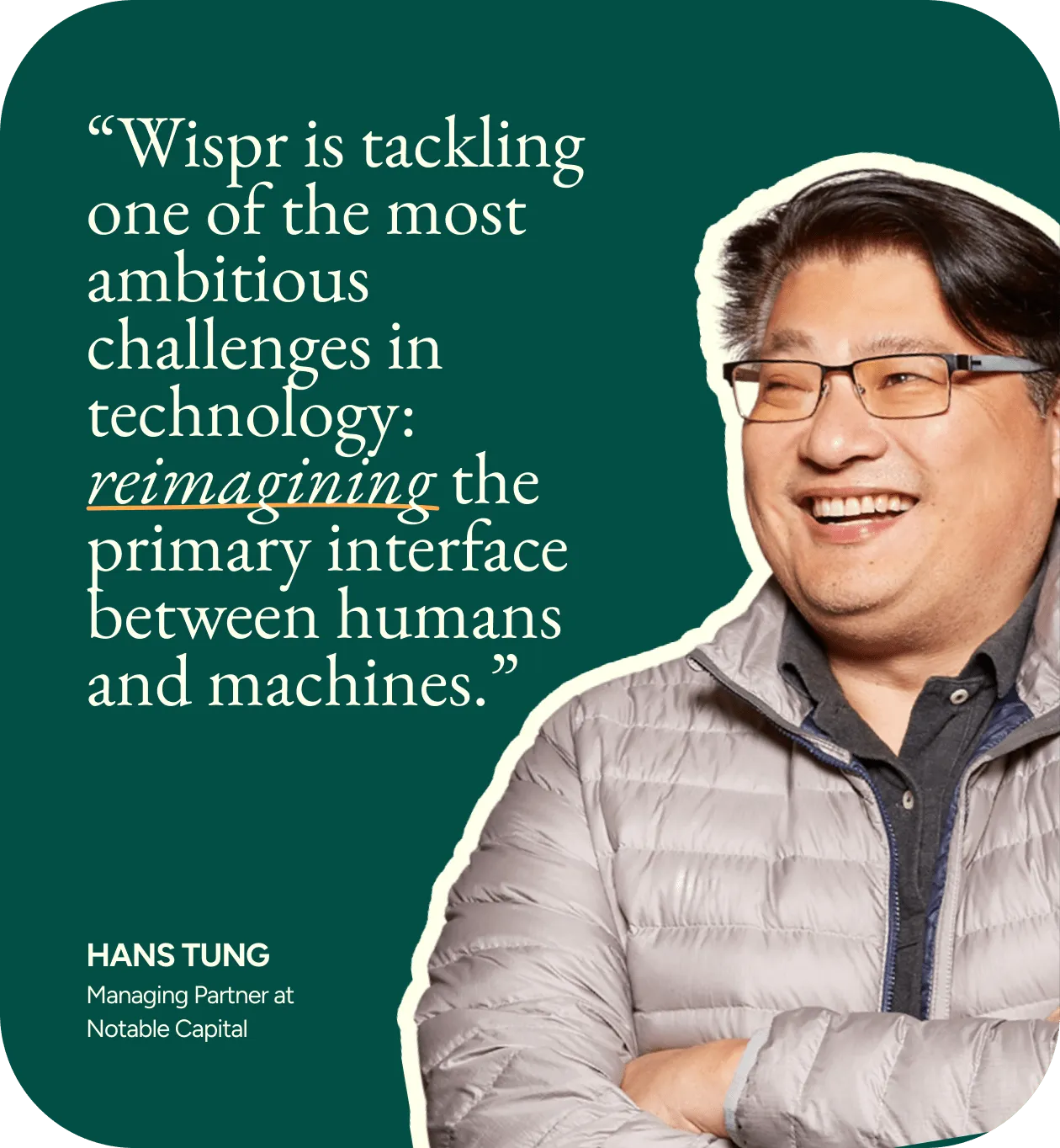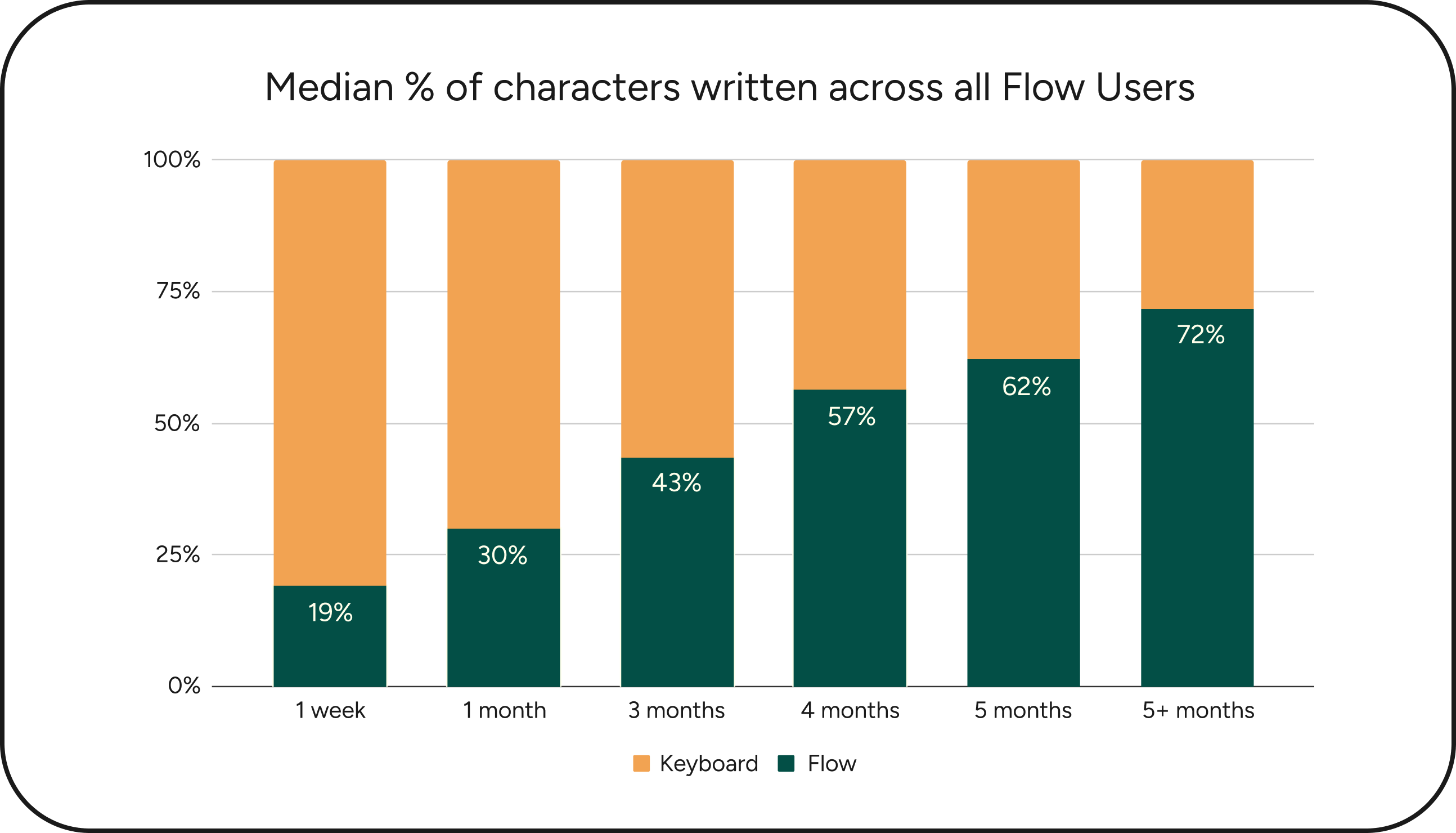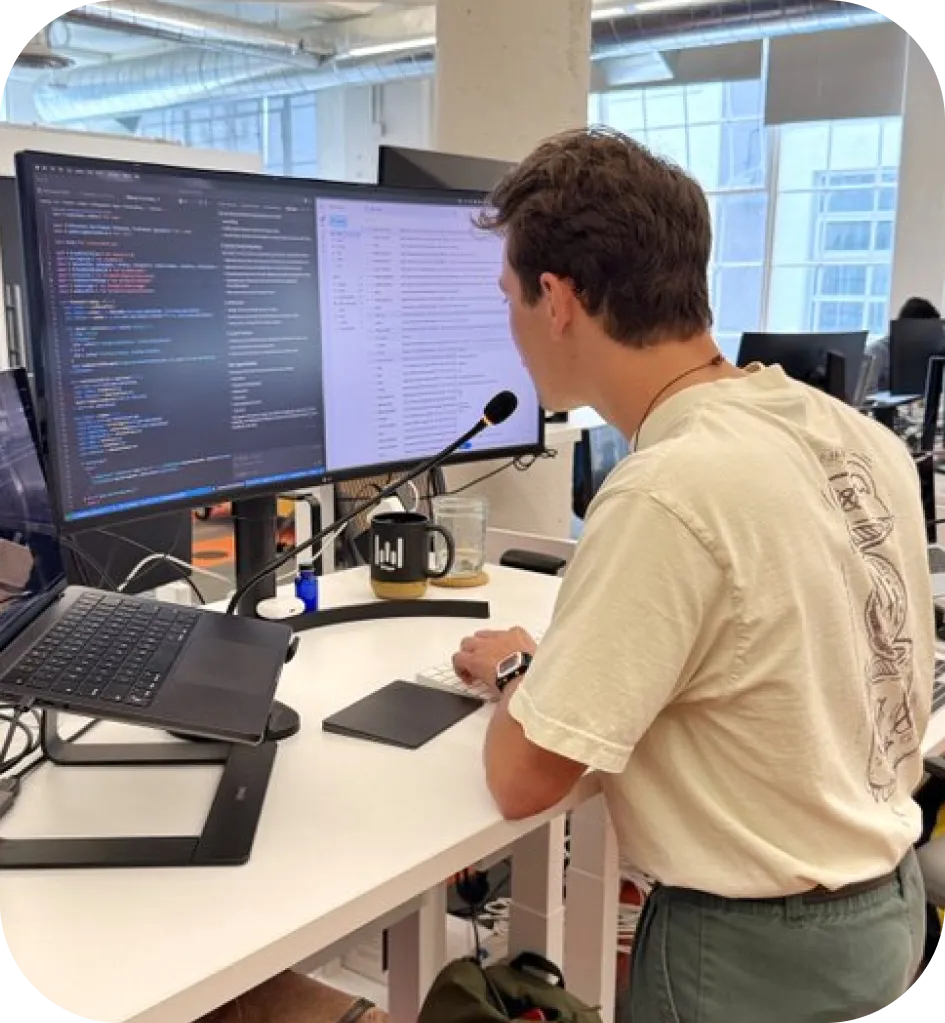Wispr Raises new funding, to Build the Voice OS

You’ve heard of being voicepilled?
Earlier this fall, Reid Hoffman wrote about being “voicepilled.” The term borrows from The Matrix, that moment of sudden mental clarity when you realize there’s another way to see the world. For him, being voicepilled was the moment when he started using his voice to interact with technology and unlocked a faster, better way to get things done.
Hoffman isn’t alone. Millions of people around the world are ditching their keyboards and discovering the power of voice as the next great interface shift. Every major leap in computing has come not just from smarter machines but from better interfaces, and this is the next one. As AI scales, people can finally interact with technology in the most human way possible: by speaking.
Being “voicepilled” is that moment of realization that once you start seriously using your voice to interact with technology, you unlock a new way to amplify your ability. If you use products like Wispr or ChatGPT Voice, you know what I mean.
The shift is real
At Wispr, we’ve been building toward this moment. From the start, our goal has been to build a voice-native computing system, powered by foundation models built specifically for how people speak and work. Most tools treat voice as a feature. We’re building the underlying system that makes speech reliable enough to become the primary way people get things done.
Today, we’re taking the next step towards that goal with $25 million in new funding, bringing our total funding to $81 million, led by Notable Capital with participation from Steven Bartlett’s Flight Fund.
Hans Tung at Notable joins our board. A 13-time Forbes Midas Lister, Hans has been an early backer of companies like Affirm, Airbnb, Slack, Coinbase, Anthropic, and TikTok, businesses that redefined how people shop, work, and communicate, and valued at over $100b collectively today. Hans has a history of investing in the technologies that become everyday habits, and his belief in us is evidence that Wispr is on that same path.
Steven Bartlett, through Flight Fund, brings the kind of reach and energy that makes new ideas spread. As host of The Diary of a CEO, he’s built one of the world’s top 10 podcasts with over a billion streams and an audience of more than 35 million subscribers, all dedicated to helping people reach their full potential. In addition to the investment, we’re also launching a year-long collaboration with The Diary of a CEO to spotlight how voice is becoming the next great driver of human productivity.


Voice at work
Voice isn’t a novelty anymore, it’s becoming the way people actually work. Flow is five times faster than typing, and after six months, the average person writes nearly three-quarters of their characters by voice.

This performance comes from building our own models and infrastructure rather than relying solely on general-purpose LLMs. A voice system has to respond the moment you speak, and delivering that kind of reliability is only possible when you control the entire stack. It’s why Flow feels consistent across apps instead of the unpredictable experience people have learned to expect from earlier voice tools.
One of the places where we’re seeing this shift take hold the quickest is in engineering. Flow works seamlessly within IDEs and understands developer intent, making voice coding not just possible but practical. Walk into an office where the team is using Wispr and you’ll see it: engineers quietly coding by voice, shipping faster, and staying in flow.
It’s easy to imagine a future where we start to see voice become primary at work, the spaces where we work will evolve to be built around conversation instead of keyboards.


What’s most gratifying is seeing who else this shift reaches. Flow was never meant just for Silicon Valley tech workers: it’s for anyone who wants to work, write, or think more freely.
Increasingly that includes people for whom typing is painful or impossible, from individuals suffering from Parkinson’s to those with arthritis and age-related mobility and vision changes. For many, it’s not just a faster way to write, it’s a way to participate fully again.
What’s next?
This round accelerates the next phase of our work: building the voice native computing system and the foundation models that power it. As Flow expands into more environments and platforms, our goal is to make speech feel like a first-class, universal interface, not just a faster way to type, but a new way to work.
Enterprise is the next frontier for this system. We’re expanding Wispr for teams and larger organizations, with new pricing and enterprise-grade security to help voice spread at work. These are early steps toward a future where every company can collaborate, create, and communicate by voice.
We’re also hiring. We’re looking for people who want to solve the hardest problems at the intersection of AI and voice: latency, context, personalization, sub-audible speech, multilingual transcription, and more. Everything we’re building, from the system itself to the models underneath, is in service of a world where voice becomes the primary interface for work.
Our goal is to help everyone get voice-pilled. To experience that moment when you feel the effortlessness and delight that comes from talking instead of typing. We hope you’ll come down the rabbit hole with us into the post-keyboard future.

Start flowing
Effortless voice dictation in every application: 4x faster than typing, AI commands and auto-edits.


